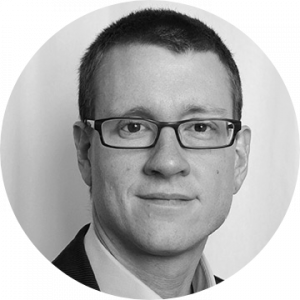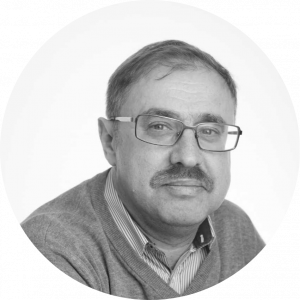 Inga Saikkonen is a Research Fellow working at the Åbo Akademi University. Inga specialises in electoral authoritarianism, electoral manipulation, and democratic developments. Her latest publications are dedicated to how the COVID-19 affects democracy; authoritarian capacity, and electoral manipulation. At the workshop, Inga Saikkonen will give a talk “Public Policy and Elections in Authoritarian Regimes: Evidence from the Policy on Native Languages in Russia”, which is based on the paper she is co-authoring with Assistant Professor Allison White from Colorado State University.
Inga Saikkonen is a Research Fellow working at the Åbo Akademi University. Inga specialises in electoral authoritarianism, electoral manipulation, and democratic developments. Her latest publications are dedicated to how the COVID-19 affects democracy; authoritarian capacity, and electoral manipulation. At the workshop, Inga Saikkonen will give a talk “Public Policy and Elections in Authoritarian Regimes: Evidence from the Policy on Native Languages in Russia”, which is based on the paper she is co-authoring with Assistant Professor Allison White from Colorado State University.
 Ora John Reuter works as an Associate Professor at the Department of Political Science at the University of Wisconsin–Milwaukee. His research interests include comparative political institutions, authoritarianism, elections, democratisation, comparative political economy, and Russian politics. Ora John Reuter is the author of the book the Origins of Dominant Parties: Building Authoritarian Institutions in Post-Soviet Russia and the recent papers on Clientelist Appeals and Voter Turnout in Russia and Venezuela; Protest Coordination in Authoritarian Regimes. At the workshop, Ora John Reuter will give a presentation “The Authoritarian Turnout Gap: How Civic Duty Helps Autocrats Win Elections”.
Ora John Reuter works as an Associate Professor at the Department of Political Science at the University of Wisconsin–Milwaukee. His research interests include comparative political institutions, authoritarianism, elections, democratisation, comparative political economy, and Russian politics. Ora John Reuter is the author of the book the Origins of Dominant Parties: Building Authoritarian Institutions in Post-Soviet Russia and the recent papers on Clientelist Appeals and Voter Turnout in Russia and Venezuela; Protest Coordination in Authoritarian Regimes. At the workshop, Ora John Reuter will give a presentation “The Authoritarian Turnout Gap: How Civic Duty Helps Autocrats Win Elections”.
 Norbert Kersting is a Professor in Comparative Political Science at Local Muenster University and Chair of Comparative Political Science – Municipal and Regional Politics’. His research focuses on comparative political science, political culture, modern instruments to promote political participation and discourse, local politics, parliamentarism, e-democracy, regional integration, and sport. He published various articles and books, such as the edited book “Electronic democracy” (2012) in the IPSA series: World of Political science. He co-authored a book on “Local Governance reform in global perspective” (VS-Springer 2009). During the workshop, Professor Kersting will give a talk “Direct Democracy and Integrity. Russia and beyond”.
Norbert Kersting is a Professor in Comparative Political Science at Local Muenster University and Chair of Comparative Political Science – Municipal and Regional Politics’. His research focuses on comparative political science, political culture, modern instruments to promote political participation and discourse, local politics, parliamentarism, e-democracy, regional integration, and sport. He published various articles and books, such as the edited book “Electronic democracy” (2012) in the IPSA series: World of Political science. He co-authored a book on “Local Governance reform in global perspective” (VS-Springer 2009). During the workshop, Professor Kersting will give a talk “Direct Democracy and Integrity. Russia and beyond”.
 Katalin Miklóssy is a Senior Researcher at the Aleksanteri Institute and Lecturer at the University of Helsinki. Katalin specialises in political history, nationalism and identity building, strategic culture, and the Central and Eastern European region. Dr. Miklóssy works as an expert evaluating research projects for the EURIAS, the Austrian Science Fund, and Baltic Sea Fund. Her recent publications are dedicated to Subregional Integration in East-Central Europe and Strategic Culture in Russia’s Neighborhood. At the workshop, you can listen to her talk “Electoral adaptability in the Eastern EU”.
Katalin Miklóssy is a Senior Researcher at the Aleksanteri Institute and Lecturer at the University of Helsinki. Katalin specialises in political history, nationalism and identity building, strategic culture, and the Central and Eastern European region. Dr. Miklóssy works as an expert evaluating research projects for the EURIAS, the Austrian Science Fund, and Baltic Sea Fund. Her recent publications are dedicated to Subregional Integration in East-Central Europe and Strategic Culture in Russia’s Neighborhood. At the workshop, you can listen to her talk “Electoral adaptability in the Eastern EU”.
 Vladimir Gel’man is a Professor of Russian Politics at Aleksanteri Institute and a Professor at the European University at St.Petersburg, focusing on political regime dynamics, political institutions, governance and policy-making, elections, governance, and policy conduct in Russia and post-Soviet Eurasia, political parties, and political protests, and sub-national politics in Russia. Vladimir holds the Russian Political Science Association Award and is the author of various articles and books on post-Soviet politics. His latest research is dedicated to Authoritarian Modernization in Post-Soviet Russia, bad governance during the COVID-19 pandemic in Russia. The participants of the workshop will get a chance to hear Professor Gel’man’s presentation “Governing Authoritarian Elections: The Case of Russia”.
Vladimir Gel’man is a Professor of Russian Politics at Aleksanteri Institute and a Professor at the European University at St.Petersburg, focusing on political regime dynamics, political institutions, governance and policy-making, elections, governance, and policy conduct in Russia and post-Soviet Eurasia, political parties, and political protests, and sub-national politics in Russia. Vladimir holds the Russian Political Science Association Award and is the author of various articles and books on post-Soviet politics. His latest research is dedicated to Authoritarian Modernization in Post-Soviet Russia, bad governance during the COVID-19 pandemic in Russia. The participants of the workshop will get a chance to hear Professor Gel’man’s presentation “Governing Authoritarian Elections: The Case of Russia”.

Regina Smyth is a Professor of Political Science at Indiana University. Her primary research interest is in the dynamics of state-society relations in transitional and electoral authoritarian regimes. She has also has written extensively on political development in the Russian Federation, including her recent book Elections, Protest, and Authoritarian Regime Stability: Russia 2008–2020 (Cambridge University Press, 2020). Her research, largely based on original data collection and analysis, has been funded by the National Science Foundation, International Research and Exchanges Board, US – Russia Foundation, National Council for Eurasian and East European Research, the National Security Education Program, the Smith Richardson Foundation, and the Russian and East European Center, Ostrom Workshop, Department of Political Science, and College of Arts and Sciences at Indiana University.
